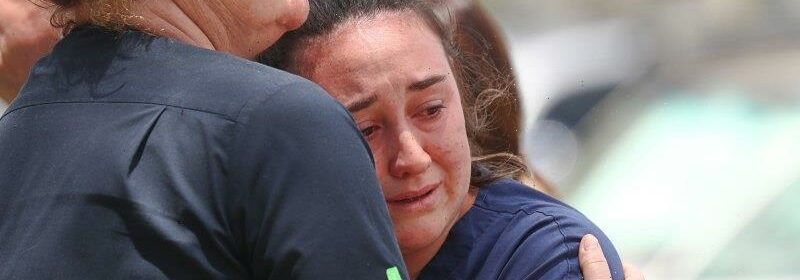Increasing threat from conspiracists and far-right warrant response

The murder of three people and the deaths of three others at a property in the remote Queensland town of Wieambilla have shocked the nation and raised worrying questions about the role of conspiracy theories.
Gareth and Stacey Train, the owners of the property, and Gareth’s brother, former school principal Nathaniel, were involved in an “execution-style” killing of two young police officers and a neighbour who went to investigate the attack.
The Trains, who according to some reports were wearing camouflage, were then killed by police.
It is early days in the investigation, but police have said they will look at social media posts by an account that had the same name as one of the alleged offenders on “sovereign citizen” conspiracy websites.
Since at least September 2020 this account has posted claims that the Port Arthur massacre in 1996 was a false flag operation by police designed to justify tougher anti-gun laws and described police as “cowards”.
Unsurprisingly, Home Affairs Minister Clare O’Neil told parliament on Thursday that intelligence agencies were already investigating the national security implications of the tragedy.
Rightly, she noted that those investigations need to run their course, but she also pointed to the obvious likelihood that radicalisation could be part of the eventual picture.
Whereas a decade ago the focus was on conspiracy theories spread by jihadi extremists and targeted at the Muslim community, the threat has now mutated into a mixture of ideologies that defy easy description and potentially appeal to a much wider group in society.
As O’Neil said, radicalisation is not new but, as she pointed out, “it is absolutely clear from events here and around the world that conspiracy theories, disinformation and misinformation problems as old as time are being turbocharged by technology into terrible acts of violence. They’re presenting a new kind of threat to national security.”
ASIO director general Mike Burgess described the behaviours as a “cocktail of views, fears, frustrations and conspiracies” in February. He linked them to “anti-vaccination agendas, conspiracy theories and anti-government sovereign citizen beliefs”.
The conspiracy theories first came to prominence in about 2017 in the QAnon chat room and political movement in the US. Their ideas have since inspired many crimes in the US, such as the mass shooting of 10 people in the city of Buffalo in May by an 18-year-old who posted a 180-page racist manifesto.
They played a role in the occupation of the US Capitol building on January 6, 2021. Some of these sites adopt neo-Nazi imagery but many, somewhat contradictorily, reject all government. Not all of the conspiracies are racist, and in the current case it is known that Gareth Train identified as Indigenous.
The rioters who vandalised Old Parliament House last year used sovereign citizen slogans but included some Indigenous people. Those who paraded gallows outside the Victorian Parliament likewise were not overtly racially motivated.
As a society, we must wonder how these evil collective delusions can thrive in our midst.
It can be hard to spot because these theories are mostly embraced by loners in the dark recesses of the internet. When people go down this rabbit hole it can be hard to know how seriously to take it or when it will shift from weird hobby to sociopathic intent.
The mainstream media and politicians have a role to play here by avoiding anything that might appear to encourage anti-establishment violence.
It can be a fine line. During the COVID-19 pandemic it was legitimate to discuss the pros and cons of lockdowns, but some broadcasters crossed the line by recycling deranged conspiracy theories.
ASIO and other police must be aware of this new threat and closely monitor what is happening online. And, as O’Neil foreshadowed, there will be “deep and very important policy questions” to prevent acts of violence.
Unfortunately, she is right. The unhinged fantasies of extremist conspiracy theories are an increasingly serious threat to society.
Michael Bachelard sends a newsletter to subscribers each week. Sign up to receive his Note from the Editor.
correction
An earlier version of this article incorrectly referred to Gareth Train as Gavin.
Most Viewed in National
From our partners
Source: Read Full Article